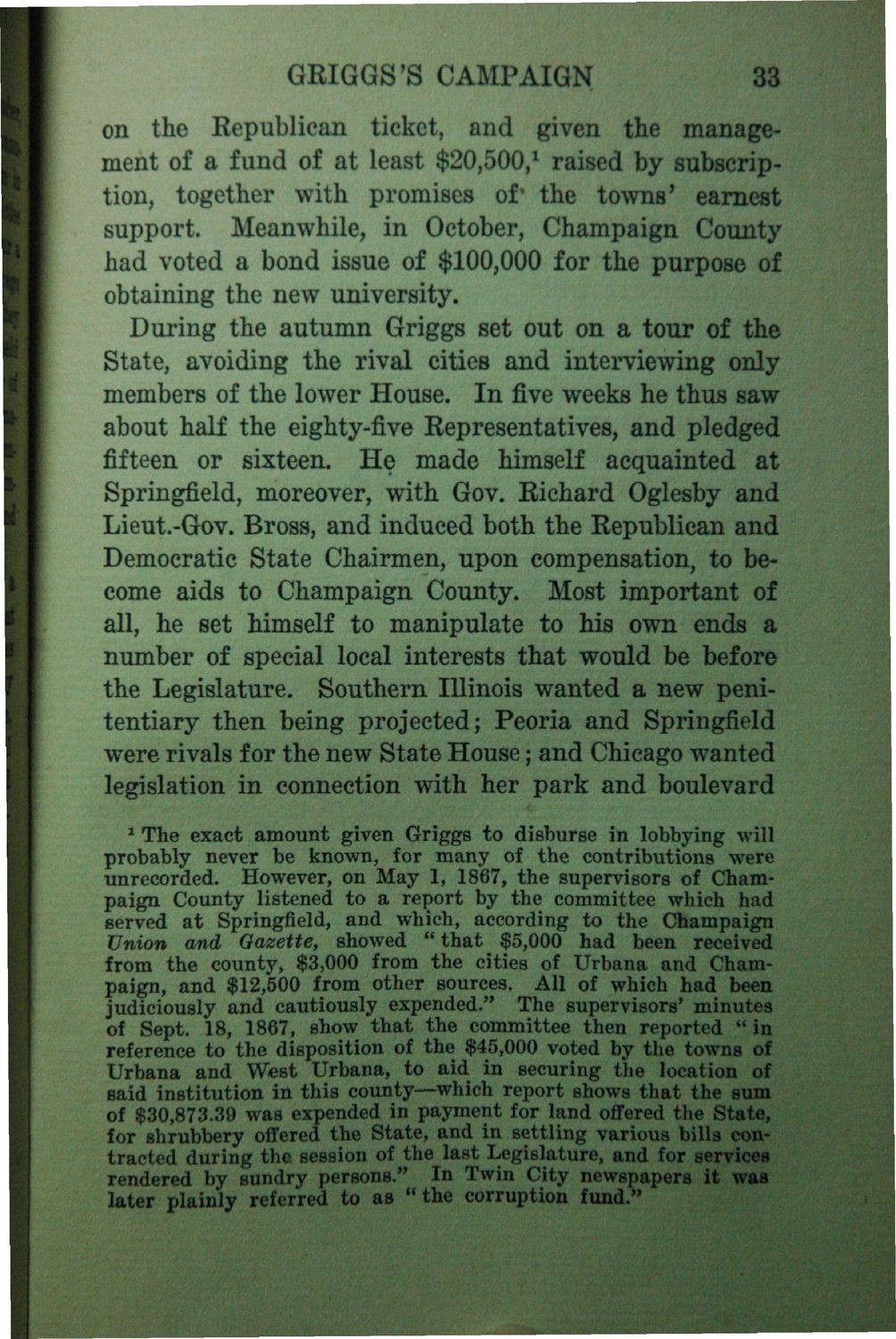| |
| |
Caption: Book - History of the University (Nevins)
This is a reduced-resolution page image for fast online browsing.

EXTRACTED TEXT FROM PAGE:
GBIGGS'S CAMPAIGN 33 on the Republican ticket, and given the management of a fund of at least $20,500,* raised by subscription, together with promises of* the towns' earnest support. Meanwhile, in October, Champaign County had voted a bond issue of $100,000 for the purpose of obtaining the new university. During the autumn Griggs set out on a tour of the State, avoiding the rival cities and interviewing only members of the lower House. In five weeks he thus saw about half the eighty-five Representatives, and pledged fifteen or sixteen. He made himself acquainted at Springfield, moreover, with Gov. Richard Oglesby and Lieut.-Gov. Bross, and induced both the Republican and Democratic State Chairmen, upon compensation, to become aids to Champaign County. Most important of all, he set himself to manipulate to his own ends a number of special local interests that would be before the Legislature. Southern Illinois wanted a new penitentiary then being projected; Peoria and Springfield were rivals for the new State House; and Chicago wanted legislation in connection with her park and boulevard The exact amount given Griggs to disburse in lobbying will probably never be known, for many of the contributions were unrecorded. However, on May 1, 1867, the supervisors of Champaign County listened to a report by the committee which had served at Springfield, and which, according to the Champaign Union and Gazette, showed "that $5,000 had been received from the county, $3,000 from the cities of Urbana and Champaign, and $12,500 from other sources. All of which had been judiciously and cautiously expended." The supervisors' minutes of Sept. 18, 1867, show that the committee then reported "in reference to the disposition of the $45,000 voted by the towns of Urbana and West Urbana, to aid in securing the location of said institution in this county—which report shows that the sum of $30,873.39 was expended in payment for land offered the State, for shrubbery offered the State, and in settling various bills contracted during th« session of the last Legislature, and for services rendered by sundry persons." In Twin City newspapers it was later plainly referred to as "the corruption fund?' 1
| |